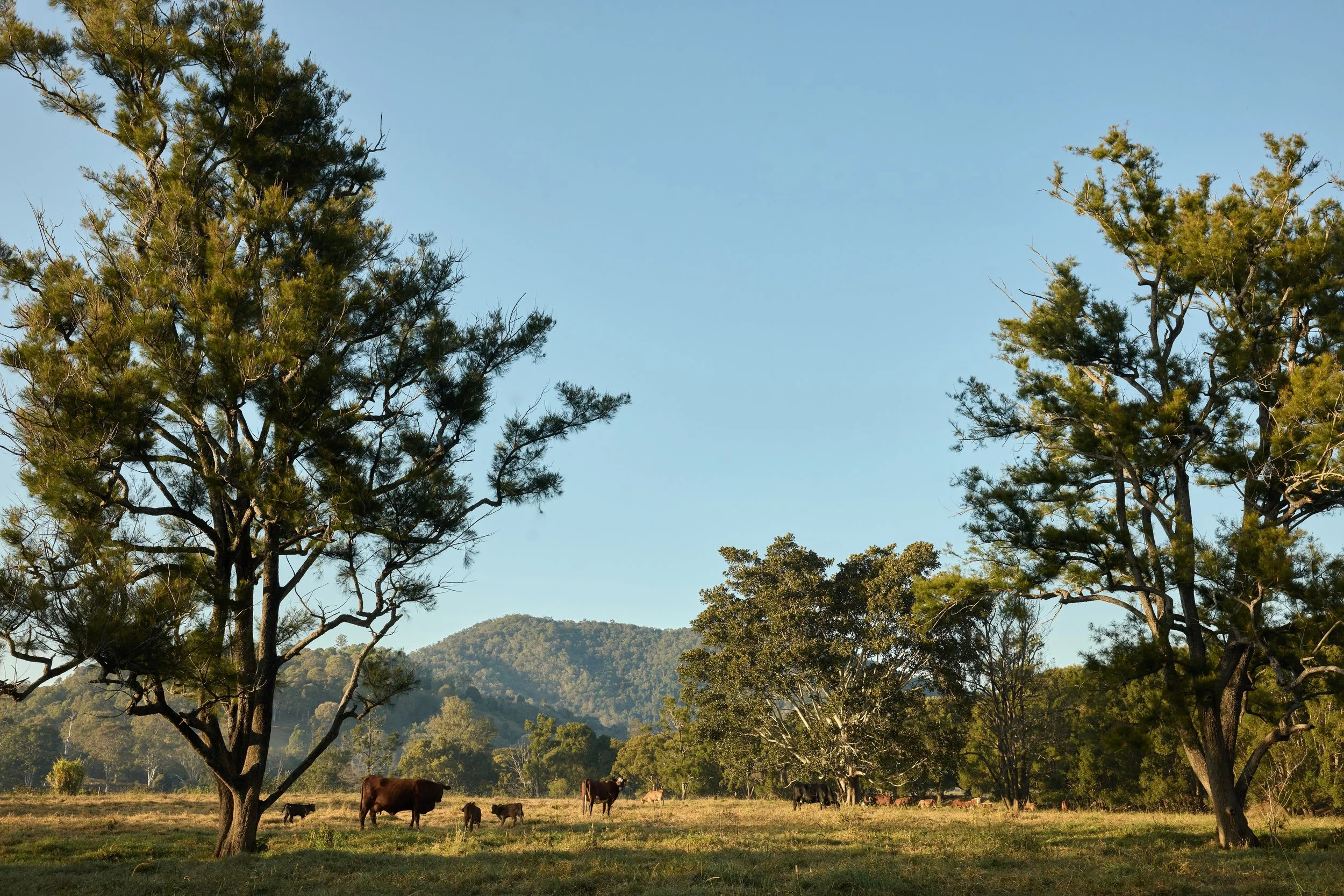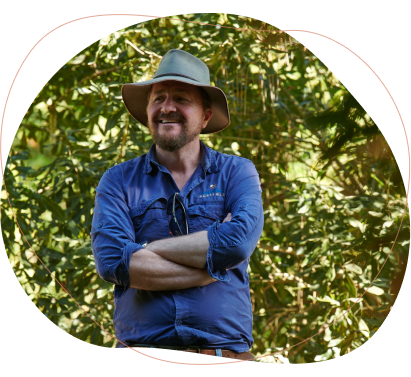
Sustainable Agriculture
Mission
To promote resilient, profitable, and environmentally sustainable farming practices across the Burnett Mary region.
Our Sustainable Agriculture team works with landholders, agribusiness, Traditional Owners, and research organisations to improve soil health, water use efficiency, biodiversity, and climate resilience on productive lands. By applying best management practices, precision agriculture, and carbon-smart techniques, we help secure the region’s agricultural future while improving ecosystem outcomes.
Key Outcomes
Widespread adoption of regenerative land management practices that build resilience into grazing, cropping and horticulture systems — including groundcover retention, rotational grazing, multi-species pastures, low-input cropping, and holistic property planning.
Quantifiable improvements in soil health, soil carbon and vegetation condition, demonstrated through repeated monitoring, and producer-led trials. This supports evidence-based practice change and access to emerging ecosystem markets.
Reduced nutrient, pesticide and sediment runoff into waterways, contributing to improved water quality across priority sub-catchments. This supports broader Reef 2050 goals and enhances the productivity of downstream ecosystems including wetlands and estuaries.
Capacity building and peer learning that empowers producers through field days, technical support, demonstration sites and knowledge networks — leading to community-led stewardship and long-term practice change.
Current Focus Areas
Grazing and Horticulture BMP Adoption
Supporting landholders to implement Best Management Practices that improve productivity and reduce runoff, including pasture management, fencing, water infrastructure, and nutrient planning.Soil Health and Landscape Rehydration
Promoting practices that build soil structure, boost organic matter, and slow water movement across landscapes.Fire-Smart and Climate-Resilient Agriculture
Integrating climate risk planning with fire-smart strategies, including rotational burning, drought and flood planning, and the revival of cultural fire practices.Access to Natural Capital Markets
Enabling producers to enter emerging carbon, biodiversity, and stewardship markets by providing support with measurement, reporting, and environmental accounting.



